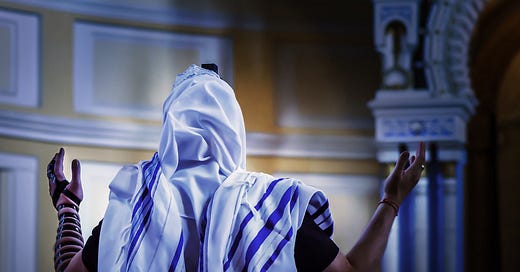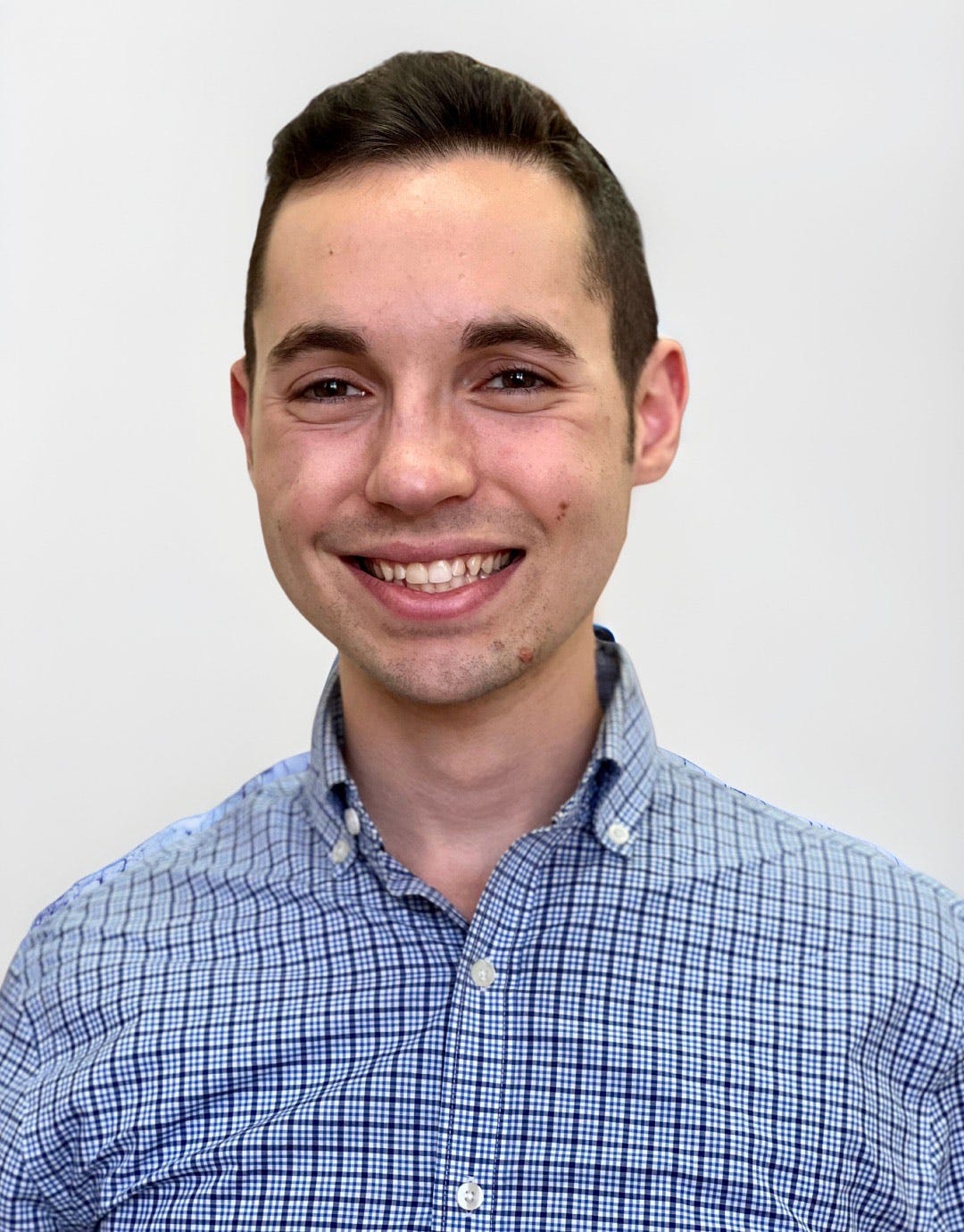With Israel At War, Prayer Helps Me Cope
A rabbinical student reflects on how prayer can bring comfort and hope.
Guest Opinion
Dear Reader,
Prayer has always provided solace in times of distress. It is both painful and comforting to recognize the timeliness of a daily blessing in the ancient siddur for the God who frees captives and punishes our enemies.
I invited Sruli Fruchter, a recent graduate of The Jewish Week’s Write On For Israel program, to write a piece here on a topic of interest to him, and I am happy to post this heartfelt, personal essay. In it he notes that this week’s Torah portion, Vayishlach, describes how Jacob, in preparing for a potential war with his brother, Esau, combines prayer and strategic planning … a reminder that the Torah is eternal.
Our thoughts are with the soldiers, hostages and nation of Israel as we pray each day for peace.
Gary
“Prayer helps me cope with my helplessness,” the author writes. (Photo courtesy of Shutterstock)
Sruli Fruchter
When Rabbi Joseph B. Soloveitchik’s beloved wife, Tonya, lay on her deathbed in 1967, he was devastated. In his desperation, he became awash with a great “need for prayer.” Every time he returned home from the hospital, he would hurry to his room, fall to his knees, and pray to God.
“God, in those moments,” he recalled, “appeared not as the exalted, majestic King, but rather as a humble, close friend, brother, father in such moments of black despair. He was not far from me; He was right there in the dark room.”
For Rav Soloveitchik, a major Orthodox rabbinic authority of the 20th century, ritual became remedial during that crisis, a cathartic exercise for the helplessness in watching his wife’s condition worsen. His inability to relieve her sickness bore his greatest anguish.
I cannot help but feel a similar anguish watching events here in Israel unfold during these dark days. And like Rav Soloveitchik, my inability summons my own great need for prayer. It comforts me in ways I desperately need.
Two months after the horrific Hamas pogrom, we are suffused with uncertain angst: American public support is dropping, the hostages’ fate remains unclear, Iran is threatening regional security, and the war’s end appears indefinite.
Scrolling through news updates and refreshing Twitter feeds provides illusory relief while contributing absolutely nothing to Israel’s well-being. Aside from the 6 percent of Israel’s population — 360,000 reservists and 170,000 of Israel’s active IDF personnel — who are bracing themselves for the battles ahead, many of the rest of us are relegated to the sidelines.
As a recent oleh, a new immigrant to Israel, I find it especially painful. My country’s fate lies beyond my control, but I find hope in prayer, divinely designed and biblically mandated for times of distress like ours. It helps me cope with my helplessness by opening an avenue of recourse before me. And its effect has been profound. Prayer offers me two conciliatory experiences: The first is comfort in God’s presence; the second is hope in God’s power.
In prayer’s intimacy, God carves a space for my despair and anxiety so I can confront the full force of my reality. I can ruminate on my concerns of tragedies past, present, and future; I can stand in silence, listening to my pain; I can channel our people’s ancient words and timeless conditions for today.
Prayer relieves the isolation of my experience by inviting in the only One who can completely grasp it. More than I crave control, I crave comfort. And there are some comforts that only God can provide.
I am reminded of a midrash commenting on the Exodus story. It explains why God chose to appear to Moses as a burning bush at their first encounter: “Don’t you feel that I am submerged in pain just as Israel is submerged in pain?” God asks Moses. “Know, from the place that I speak with you within these thorns, I am, as it were, sharing your pain.”
The second component of prayer concerns my ability to influence reality in dialogue with God.
As a high school senior, I was perpetually bothered by prayer’s function. Am I changing God’s mind? What am I sharing that God does not already know? How does prayer even “work”? This issue dominated my philosophical exploration in my gap year in yeshiva after high school. There, I discovered answers in multitudes, but was most profoundly struck by the writings of Rabbi Abraham Isaac Kook (1865-1935), a founder of religious Zionism and the first Ashkenazi Chief Rabbi of Palestine under the British Mandate.
Prayer, Rav Kook says, is not aimed at God’s will, nor merely at oneself. Rather, it is meant to transform the pray-er and, in effect, “transforms the entire worth of existence for good and ascension, because all of existence is influenced from one of its spiritual parts.” Existence is composed of small, individual parts, and changing one cell can change everything. Suddenly, power, hope, is reinstated to me. As prayers transform me, I can transform the world through prayer.
The siddur’s words provide a script for such transformation. Especially now, it allows me to articulate my inexpressible emotions. The confluence of pleas for divine compassion, demands for evil’s destruction, and dreams for Messianic redemption gives voice to the discord within me. Declaring God “Free-er of the imprisoned” reminds me of the hostages in Gaza; calling for evil’s extinction inflames my rage toward Hamas; and imagining the dawn of a new reality secures my trust in the Jewish People’s future.
This week’s Torah portion, Vayishlach, in which Jacob anticipates a warring clash with his vengeful brother Esau, classically serves as a prooftext for prayer in crisis, and even in wartime. Prayer is one of Jacob’s preparation for war, alongside appeasement and battle strategy. Prayer not only comforts him but opens spiritual avenues of hope into his real-world conflict.
It is that very night that Jacob wrestled with an angel who renames him Israel — a title of victory that identifies us to this day as the Children of Israel. May our prayers at this moment of struggle help bring victory and peace to the people, land and state of Israel.
Sruli Fruchter lives in Jerusalem and is a rabbinical student at Yeshiva University, where as an undergraduate, he was the 100th editor-in-chief of The Commentator, the school newspaper. He is also director of operations at 18Forty, a Jewish media company exploring Jewish ideas in a modern age.






Such a beautiful, poignant piece.
I find myself doing the opposite, turning away from God in these times of pain, suffering, and yes, even anger. The idea of the transformational power of prayer is beautiful and comforting, and helps me feel like my prayers do serve a purpose.
Thank you Gary and Sruli.